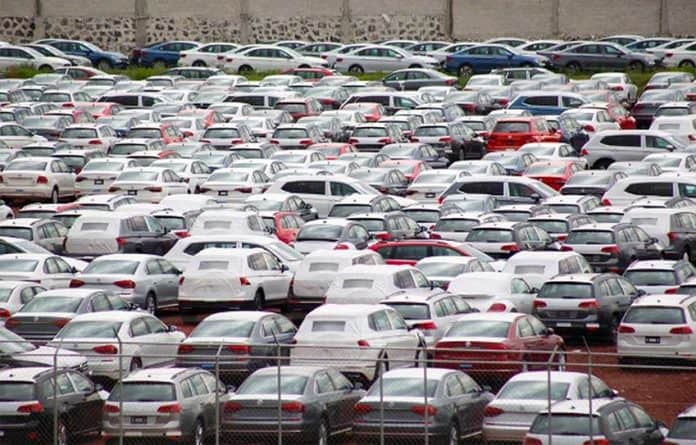A practice employed by automotive manufacturer Volkswagen México to protect its new vehicles from hailstorms has led to a dispute with local farmers, who claim their crops are being damaged.
But now the Puebla state government has announced it will intervene to look for a solution.
Farmers blocked access to Volkswagen’s assembly plant in the state earlier this month to protest against the German auto maker’s use of hail cannons, which they claim has caused a drought that has affected their crops.
Volkswagen (VW) started using the shockwave generators in June to prevent new vehicles, which are parked in an outdoor lot, from being damaged by the falling ice pellets. The practice purportedly disrupts the formation of hailstones.
But farmers from the municipalities of Puebla, Amozoc and Cuautlancingo — where the plant is located — say the cannons have stopped not only hail from falling but also rain and as a consequence their crops, covering at least 2,000 hectares, have suffered.
They are asking for 73 million pesos (US $3.8 million) in compensation.
The Puebla government said it will meet with both the factory’s management and the affected famers to reach an agreement.
In the meantime, it ordered that Volkswagen temporarily suspend the use of the hail cannons — which are also referred to in Mexico as “bombas antigranizo” or anti-hail bombs — until the National Water Commission issues a ruling about the effect the technology has on precipitation.
Despite the government’s order, the farmers claim that the cannons have continued to be used but according to local media the company agreed to the ban and says it has not used the hail cannons since.
Governor José Antonio Gali Fayad promised that the dispute will be resolved through dialogue this week and didn’t rule out the possibility that the affected farmers would be awarded compensation.
He added that Volkswagen had sought and received authorization to use the cannons.
Ironically, the machines are usually deployed by farmers as a storm approaches as a means to protect their crops from being damaged.
However, according to a 2016 article published by the online magazine Atlas Obscura, “today, hail cannon technology still lacks any scientific evidence supporting its efficacy — but people continue to make and use the devices.”
Source: Sin Embargo (sp)
